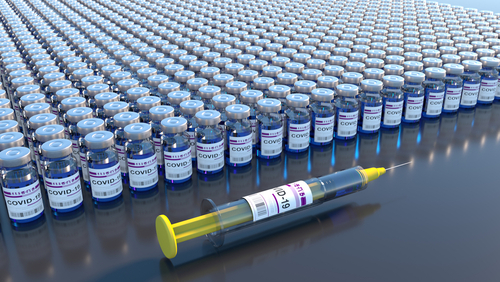
A Moderna, Inc. vaccine is on track to become the second COVID-19 vaccine approved for emergency use in the United States, following this week’s positive endorsement from the Vaccines and Related Biological Products Advisory Committee (VRBPAC).
The VRBPAC, an advisory committee for the U.S. Food and Drugs Administration (FDA), met this week to discuss the Moderna messenger RNA (mRNA) candidate. The committee endorsed support for an Emergency Use Authorization (EUA) for the vaccine 20-0, with one member abstaining. The committee’s vote was based on scientific evidence provided by Moderna, including clinical data.
The committee’s vote for the Moderna vaccine comes one week after Pfizer and BioNTech SE’s COVID-19 vaccine was granted an EUA.
“Following today’s positive advisory committee meeting outcome regarding the Moderna COVID-19 vaccine, the U.S. Food and Drug Administration has informed the sponsor that it will rapidly work toward finalization and issuance of an emergency use authorization,” FDA Commissioner Stephen Hahn and Dr. Peter Marks, director of the Center for Biologics Evaluation and Research, said in a joint statement. “The agency has also notified the U.S. Centers for Disease Control and Prevention and Operation Warp Speed, so they can execute their plans for timely vaccine distribution.”
More than 30,000 volunteers are participating in the vaccine’s phase three study, also known as COVE. So far, only 196 cases of COVID-19 emerged among this group, confirming a 94.1 percent efficacy rate. Still, the study — which is ongoing — showed mild to moderate side effects to the vaccine, such as injection site pain and swelling, and some more severe reactions after a second injection. All participants will be monitored for two years after their second dose to assess long-term protection and safety.
“We thank the committee for their review and for their positive recommendation in support of Emergency Use Authorization,” Moderna CEO Stéphane Bancel said. “We have been working with the U.S. Centers for Disease Control and Prevention and Operation Warp Speed to prepare for the distribution of mRNA-1273 if the FDA chooses to grant an Emergency Use Authorization. We look forward to getting our vaccine to people in the U.S. to help address this ongoing public health emergency.”
The vaccine is capable of transport at a temperature of 36-46 degrees Fahrenheit, meaning only refrigeration, rather than deep freeze transport, will be necessary. Further, the vaccine can remain stable at those temperatures for up to 30 days. This expands its capability of distribution and storage.
The distribution of the vaccine will likely begin immediately after any FDA approval.




